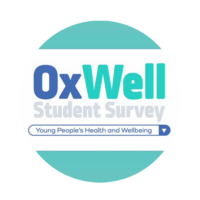Self-harm is an increasingly recognised phenomenon and one of the strongest predictors of suicide, which continues to be one of the leading causes of death in young people world-wide. Self-harm can take many forms and may present with or without suicidal intent and both in the context of mental disorder, and without.
Self-harm & Suicide
-

Adolescent Social Anxiety Symptoms and their relationship with Suicidal Ideation and Depressive Symptoms
In this Papers Podcast, Dr. Kenny Chiu discusses his JCPP Advances paper ‘Social anxiety symptoms and their relationship with suicidal ideation and depressive symptoms in adolescents: A prospective study’. Kenny is the lead author of the paper. There is an overview of the paper, methodology, key findings, and implications for practice.
Read more -

Digital Interventions and Self-harm Prevention
In this In Conversation podcast, we are joined by Dr. Bethany Cliffe, a research fellow at the University of Westminster. Beth’s research interests include self-harm, suicide prevention, and digital health. The focus of this podcast will be on self-harm and technology.
Read more -

Breaking the Silence: Asian American and Pacific Islander Youth Mental Health and Suicide
TRIGGER WARNING: Please be aware that this podcast explores themes around the topics of self-harm and suicide.
In this Papers Podcast, Dr. Miles Reyes and Dr. Apurva Bhatt discuss their co-authored CAMH journal Special Issue paper ‘Breaking the Silence: An Epidemiological Report on Asian American and Pacific Islander Youth Mental Health and Suicide (1999–2021)’.
Read more -

An Increasing Concern: Improving Self-Harm and Self-Injury Awareness
If you or a person you know is struggling with their mental health, please seek support by accessing the helplines and resources provided by the NHS website. For those outside the UK please use an internet search to find an organisation that can offer direct support.
1 March is globally recognised as Self-Harm and Self-Injury Awareness Day and serves as an opportunity to raise awareness, encourage an understanding, and promote more conversations around the topic of self-harm and self-injury. We encourage you to explore the learning opportunities available on our website and do please share with your networks and colleagues.
Read more -

Self-harm Behaviours and Loneliness: Insights from the OxWell Student Survey
TRIGGER WARNING: Please be aware that this podcast explores themes around the topic of self-harm.
The ‘Insights from the OxWell Student Survey‘ series is a new mini-in conversation series that will explore the OxWell study and the impact of its findings for parents, teachers, policymakers and mental health professionals.
In this episode, Dr. Galit Geulayov and Dr. Rohan Borschmann comment on the findings from the OxWell survey regarding self-harm behaviours as well as informal and formal support for adolescents who self-harm.
Read more -

Social connectedness and adolescent suicide risk
Open Access paper from the JCPP – ‘Despite evidence of the importance of interpersonal connectedness to our understanding of suicide risk, relatively little research has examined the protective and buffering effects of connectedness among adolescents.’ Alejandra Arango (pic) et al.
Read more -

Evidence Synthesis Studies, and Autonomic Dysregulation and Self-injurious Thoughts and Behaviour
In this Papers Podcast, Dr. Alessio Bellato discusses his JCPP Advances Special Issue Editorial ‘Evidence-based child and adolescent mental health care: The role of high-quality and transparently reported evidence synthesis studies’.
Alessio also co-authored a Research Review paper in the Special Issue entitled ‘Autonomic dysregulation and self-injurious thoughts and behaviours in children and young people: A systematic review and meta-analysis’, which will also be discussed.
Read more -

Common Elements in Treatments for Youth Suicide Attempts and Self-harm
(TRIGGER WARNING: Please be aware that this podcast explores themes around the topics of self-harm and suicide.)
In this Papers Podcast, Dr. Jocelyn Meza discusses her co-authored JCPP paper ‘Practitioner Review: Common elements in treatments for youth suicide attempts and self-harm – a practitioner review based on review of treatment elements associated with intervention benefits’. Jocelyn is the lead author.
Read more -

Creating Hope Through Action – Suicide Prevention, A Priority For All
World Suicide Prevention Day (10 September) is a fantastic opportunity to encourage an understanding and increase awareness of suicide prevention and make suicide prevention a priority. We encourage you to explore the learning opportunities available on our website and do please share with your networks and colleagues.
Read more -

Micro-sequences of anger and shame and non-suicidal self-injury in youth: an ecological momentary assessment study
Paper from the JCPP – ‘In this study, we focused on in vivo anger at self and others and shame and NSSI among 158 adolescents 3 weeks following their psychiatric hospitalizations using ecological momentary assessment (EMA) technology’. Anastacia Y. Kudinova (pic) et al.
Read more